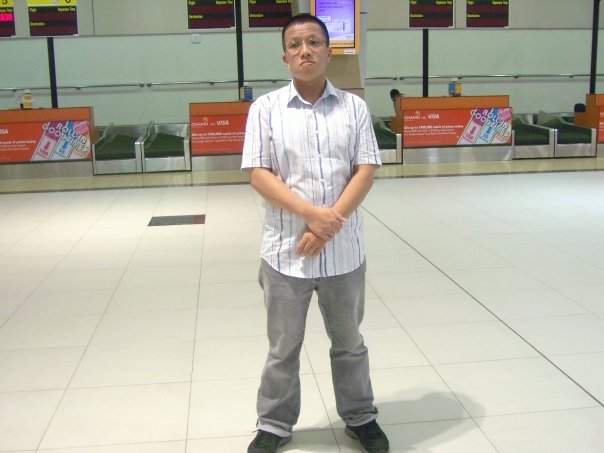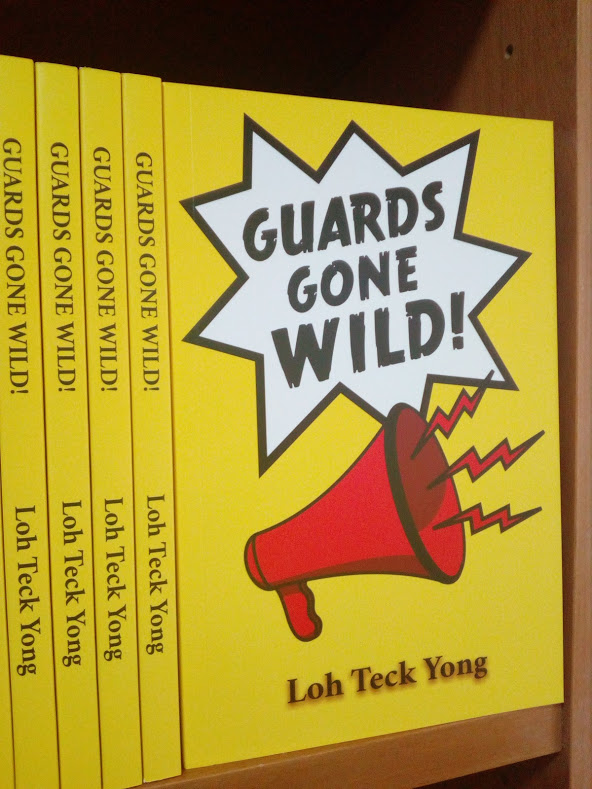Back in 1999, curiosity about what security guards really did at work led 23-year-old Loh Teck Yong to take on the job of security guard when the opportunity presented itself. He remained in the industry for the next 2 decades, wrote a book about his adventures on the job, and recently gave us a rundown on the ugly and beautiful sides of being a security guard in Singapore.
“If you are considering a career in the security industry, you have to steel yourself for the scoldings and beatings that come with the job.”Q: Hi Teck Yong! How did you end up as a security guard? Was it a life-long dream or pure chance?
A: Neither. I took my first security job out of curiosity. At that time, I didn’t know much about the industry and was somewhat fascinated by the existence of security guards. I had run-ins with security guards at shopping malls during my teenage years, and I noticed that they didn’t seem to serve any discernible function at the mall. They didn’t sell merchandise. They didn’t clean. So what’s their purpose?
And eventually, my curiosity prompted me to accept a security job when the opportunity presented itself.

What academic certifications, training or experience does a person need to be qualified to work as a security guard, and how did you acquire those yourself?
You have to complete the following WSQ (Workforce Skills Qualifications) [Singapore’s workforce credentials system] modules:
1—WSQ Basic Licensing Units
2—WSQ Recognise Terrorist Threats
NTUC LearningHub is one of the largest WSQ security training providers so you can visit their website for more information.
How much, approximately, did acquiring the above qualifications cost and how did you pay it off?
If you haven’t used your SkillsFuture credit [credit given to all Singapore citizens to use to pay for training courses] yet, you should have enough to pay for the compulsory modules.
How long after becoming qualified did it take you to get your first job as a security guard? How did you know of the job opening and what did you have to do to get hired?
If I remember correctly, I completed the WSQ Basic Licensing Units back in 2009 and got a job shortly after graduation.
But my first security job was in 1999, one decade before I even attended the WSQ course for security guards. Back then, the security industry wasn’t strictly regulated and you could work as a security guard without any professional qualifications.
Job openings in the security industry are advertised in the newspapers and, nowadays, security agencies have also turned to using Facebook groups to find job seekers.

Which 3 aspects of the job were most difficult for you at first and how did you figure out how to overcome them?
One: The long hours. Full-time security guards have to work 12-hour shifts for 6 days a week. I depended heavily on energy drinks to keep myself awake when I worked full-time.
Two: Late or non-payment of wages. It’s a chronic problem in the industry but, thanks to the proliferation of social media, this problem is less severe nowadays than when I first started working as a security guard. And some security agencies are trying to attract the guards with trust issues by offering the daily-pay system. You get paid on each and every day that you work. There. Late payment problem solved.
Three: The abuse. We security guards tend to be on the receiving end of abuse—perhaps it’s because we are not armed with degrees from top universities. If you are considering a career in the security industry, you have to steel yourself for the scoldings and beatings that come with the job. I was harassed by gangsters at a shopping mall and threatened by a knife-wielding supervisor at a department store. On both occasions, I tried to reach an understanding with my superiors. And on both occasions, I lost my job.
But despite my grim tidings, don’t despair just yet! Thanks to the proliferation of social media, more and more incidents of abuse involving security guards are seeing the light of day. If you are a victim of workplace abuse, then my advice to you is this: Facebook is your friend.
What is the work schedule of a security guard like? Did you have to work on weekends?
Full-time security guards work 12-hour shifts for 6 days per week, but some agencies are reducing the work hours to 60 hours per week. And if you look hard enough, you can also find assignments that offer a 48-hour work week.
Security has to be in place 24/7 at most facilities so security guards are expected to work on weekends and public holidays.
Are there benefits to being a security guard?
In my work life, I had the opportunity to meet people from all walks of life and, because I was just a security guard, many of them didn’t think twice about parading the ugliest sides of their personalities in front of me. Interactions like those are a gold mine for any writer who wants to write interesting characters.
So the benefit to being a security guard is you never run out of muses. And that’s a useful benefit to have if you are aiming to become a writer.

Name 3 people you’ve ever tried to emulate over the course of your career and explain why.
Gordon Ramsay. In order to protect myself from the unreasonableness in the industry, I tried to emulate Chef Ramsay’s take-no-nonsense attitude and outspokenness. Tried to. I didn’t succeed but at least I tried.
Professor Snape. Because there were occasions when swearing was inappropriate, I had to resort to using cutting sarcasm.
Mother Teresa. Because you need to have the patience of a saint to be able to do the job.
What did you learn from becoming a security guard that you didn’t know before?
I learned that not all women are attracted to men in uniform. But all kidding aside, I did learn something important. Before I joined the industry, I was looking at security guards as an outsider and didn’t see the whole picture. I ended up falsely assuming that security guards were lazy and did no real work.
But after I became a security guard myself, I began to understand the pressures of the job. Today, the stories of the abuse and injustice I faced together with my colleagues have been published into a book. If you are interested, you can look for ‘Guards Gone Wild!’ at the Kinokuniya bookstore at Takashimaya or the LocalBooks.sg webstore.

What’s the worst advice you’ve been given, or have heard people giving, with regards to being a security guard, and what’s the best?
Okay, the worst advice came from the people who told me not to take security work because the job was too menial.
The best advice was my comeback to the people who gave me the worst advice. I told them that all jobs should be valued equally and they should stick their bourgeoisie mindset where the sun doesn’t shine.
If you could replay your entire career all over again, what would you change?
I would probably tweak my personality a bit. I was too meek most of the time. If I had adopted the Gordon Ramsay persona right at the beginning of my career and stuck to it, I would have had a happier work life.
Lastly, what advice do you have for those hoping to make a living as security guards too?
Use your own money or SkillsFuture credit to take the WSQ modules. Do not rely on company sponsorship. Once you accept sponsorship from a security agency, you become indebted to them and lose the freedom to switch from one agency to another. In an industry so fraught with abuse, it’s a bad idea to lose that freedom.
Teck Yong is presently working on marketing his book, Guards Gone Wild! You may follow his adventures with his book through his website, guardsgonewild.wordpress.com, or ask him questions about being a security guard and the security industry using the comment box below.
Photographs courtesy and copyright of Loh Teck Yong. Interviewer: Sy
If you found this article useful:

Say something: